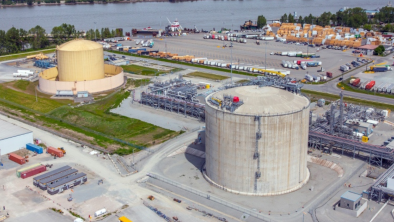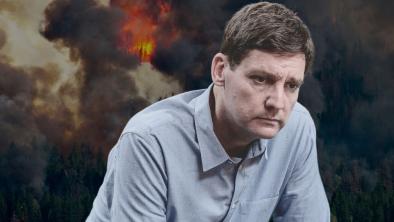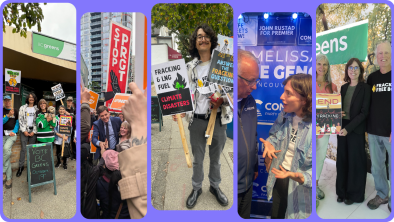More than two dozen groups join call for fracking inquiry in B.C.
Vancouver Sun

A coalition of community, First Nation and environmental organizations wants the provincial government to expand a promised review of natural gas fracking operations into a full public inquiry.
“We believe that the NDP’s campaign promise to appoint a scientific panel to review fracking won’t be enough to fully address the true risks of deploying this brute-force technology throughout northeast B.C. Current realities dictate that we need a wide-ranging public inquiry,” Ben Parfitt, a resource policy analyst with the Canadian Centre for Policy Alternatives, said in an emailed statement on Sunday.
Fracking — also known as hydraulic fracturing — involves pumping large volumes of water under intense pressure below ground to free gas trapped in tight rock formations.
Fracking leads to higher rates of earthquakes and the coalition says there are also concerns about how much water is being used in fracking operations, as expressing concerns for how truthfully the companies have engaged with local Indigenous peoples and they say there is “widespread industry non-compliance with relevant provincial water laws through the construction of dozens of unlicensed dams.”
A 4.6 magnitude earthquake in northeast B.C. in August 2015 was caused by 422 million gallons of water being pumped underground at one gas well, the B.C. Oil and Gas Commission confirmed at the time. According to the coalition, this is eight times greater than that used in the average fracking operation in the United States.
That earthquake was the largest in B.C. caused by fracking.
Grand Chief Stewart Phillip, President of the Union of B.C. Indian Chiefs, said “First Nations were not fully consulted about the true size and extent of these dams and that our Indigenous Title, Rights and Treaty rights are still completely ignored or denied.”
“We are deeply troubled that this dam building free-for-all occurred on First Nation lands,” he added.
He also said have been “no substantive or meaningful opportunities to fully participate in decisions around how water resources are managed in our respective territories.”
The head of the B.C. chapter of the Canadian Association of Physicians for the Environment raised concerns about the health risks posed by fracking.
“Recent studies have demonstrated an increased incidence of premature births, asthma and congenital heart disease in people who live close to U.S. fracking operations,” Larry Barzelai said. “Can we be assured that the same complications will not occur in B.C.? We think that a properly funded public inquiry, with a comprehensive and strong mandate, is needed to answer critical questions such as these.”
The coalition wants the inquiry, which they want to be properly funded and able to compel legal testimony, to look at whether there’s enough provincial oversight of fracking operations when it comes to compliance with regulations, in protecting public health and preserving the environment.
twitter.com/risingaction


